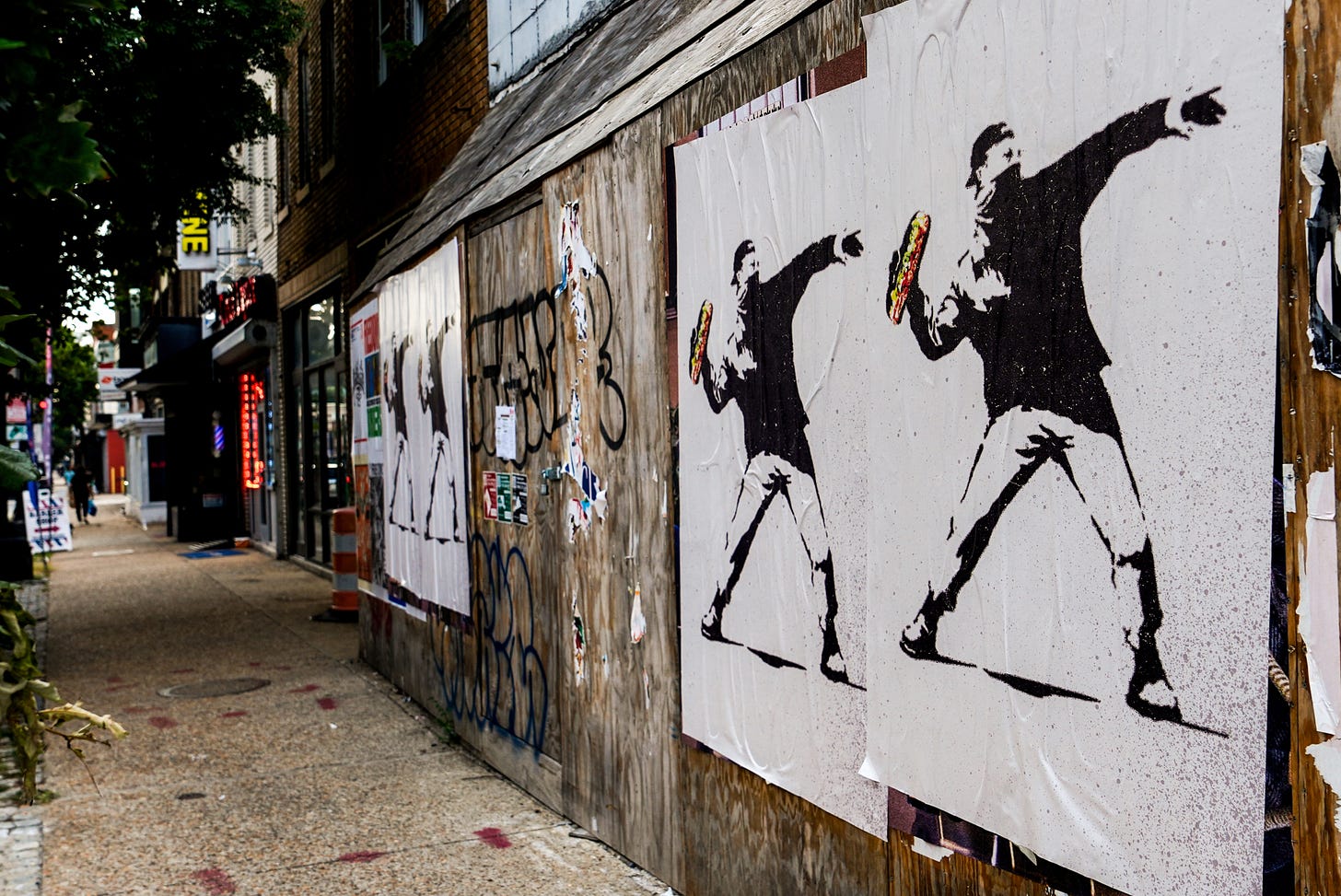Twelve Citizens and the Social Contract
Twelve citizens sat in a room and remembered who they were.
They were not radicals. They were not saints. They were what the Constitution trusted most: ordinary people asked to decide when law has become theater.
Today, a D.C. jury acquitted “sandwich guy”—the former Justice Department paralegal who threw a Subway sandwich at a Border Patrol agent during federal law enforcement’s deployment to the capital last August. Not a hung jury. Not a mistrial. Full acquittal.
Strictly speaking, this was misdemeanor assault. He threw an object. It hit an officer. Those are the facts. Any other context, any other time, that’s a conviction. The jury could have found him guilty on the law and the facts.
They didn’t. Because law is not self-justifying; it breathes through the consent of the governed. And that consent is being withdrawn.
What Twelve Citizens Saw
Every government that forgets who grants its authority eventually ends up performing its own delegitimization. The uniforms arrive. The cameras roll. The people watch—and something inside them quietly closes.
The jury saw the entire picture:
Federal agents—Border Patrol and ICE—deployed to D.C. Not because there’s a border crisis in the U Street nightlife district. Because Trump wanted shows of force. Occupation dressed as law enforcement.
A former DOJ employee arrested by the FBI for throwing food at an agent in body armor. The sandwich still wrapped after impact. The officer testifying it “exploded all over” him, that he could “smell mustard and onions”—obvious exaggeration.
Prosecutors initially seeking felony charges. A grand jury rejecting them. Trump administration political appointees running the U.S. Attorney’s Office making these decisions.
The officer receiving “gag gifts” from colleagues after the incident—a plush sandwich and a “Felony Footlong” patch—meaning even other law enforcement saw this as absurd.
Murals of sandwich guy appearing across D.C. People putting sandwiches in the hands of Halloween skeletons. A city responding to federal occupation by celebrating symbolic resistance.
The jury saw what it was: law enforcement weaponized for political ends, prosecution brought not to protect but to intimidate.
In that context, conviction becomes participation. They refused.
How Twelve Citizens Restored the Contract
The social contract breaks both ways. Law enforcement depends on legitimacy. Legitimacy comes from serving the people. When you deploy Border Patrol to intimidate residents of the capital, when you use federal agents for political shows of force, when you arrest someone for throwing a sandwich during operations that look like occupation—you’ve broken the covenant.
And when that covenant breaks, the people use whatever institutional power they retain to restore it. Juries are one of those powers.
This isn’t lawlessness. This is the constitutional system working as designed. Citizen juries exist precisely to check government overreach. When prosecutors bring political cases, juries can refuse to convict. When law enforcement operates outside legitimacy, communities can decline to help enforce it.
The jury told federal agents Thursday: you’ve lost legitimacy here. You’re not protecting this community. You’re intimidating it. And we’re not helping you do it.
What Twelve Citizens Remembered
They remembered something power always forgets: you can command bodies, but you cannot compel legitimacy. That has to be given—and it is being withdrawn.
Every agent who serves power instead of law should feel a shiver in this verdict. D.C. grand juries and trial juries have now rejected multiple cases brought by Trump’s political appointees. Not because the defendants didn’t commit the alleged acts. Because the prosecutions themselves lack legitimacy—law enforcement weaponized for political ends.
You can make arrests. You can bring charges. But you cannot force convictions when juries see through what you’re doing. When you’re deployed to intimidate rather than protect, when you arrest people for symbolic resistance to that intimidation, the governed respond with the power they retain.
Federal agents need to understand something fundamental: you serve the people, not the president. When you’re deployed for political shows of force, when you conduct operations designed to intimidate rather than protect, when you become instruments of authoritarianism rather than defenders of law—you lose the legitimacy that makes your work possible.
This acquittal is that loss of legitimacy made concrete.
The Larger Pattern Twelve Citizens Join
This fits perfectly with everything else happening:
Mamdani winning decisively in New York despite massive opposition spending. Protests growing sixteen-fold while doomers said resistance was dead. Cultural institutions defending autonomy. Universities resisting federal interference. And now: juries refusing to enforce political prosecutions.
Every level, civil society is adopting defensive posture. Not through violence. Not through revolution. Through using every legitimate institutional mechanism available to check federal overreach.
This is what the center holding looks like. Not accommodation. Not capitulation. Citizens using the power the Constitution grants them—in voting booths, in grand jury rooms, in trial jury deliberations—to remind power where authority comes from.
Remember What’s Real
The verdict was not a loophole. It was a reminder.
Twelve citizens, under oath to reality, told the state: you serve us, not the other way around.
Remember what’s real—power comes from the governed, not from those who govern. Authority is granted, not seized. And when power forgets this, ordinary people in ordinary rooms have the power to remind it.
Remember what’s real—a jury of your peers can still say no. A grand jury can still refuse to indict. Citizens can still check power through the mechanisms the Constitution provides for exactly this purpose.
Remember what’s real—federal agents deployed for political intimidation cannot make citizens help enforce that intimidation. Prosecutors bringing political cases cannot compel juries to convict. Legitimacy cannot be commanded—only earned and kept through fidelity to those you serve.
Remember what’s real—the sandwich guy walked free because twelve citizens saw clearly what was happening and refused to participate. Not because they were radical. Because they were exactly what the founders trusted: ordinary people who remembered who they were.
That’s how the center holds. Not through perfect law or faultless institutions, but through citizens recognizing when power has forgotten who grants its authority, and using their role to restore the balance.
The jury has spoken. And the message is simple, ancient, and true:
Remember who you serve. Remember what’s real. Remember that authority flows upward from the people, not downward from power.
Twelve citizens remembered. And in remembering, they reminded us all.





Someone should write a play and a movie about this jury: “Twelve Hangry Men”
Thanks for this most enlightening article Mike. It is so refreshing to see how the 4th and most powerful branch of the U.S. government is speaking and are acting out.